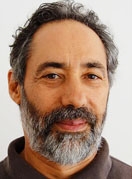Difference between revisions of "Blum, M."
| (6 intermediate revisions by 2 users not shown) | |||
| Line 1: | Line 1: | ||
{{Person | {{Person | ||
| − | |||
| − | |||
|HasDrlPage=Yes | |HasDrlPage=Yes | ||
|HasLibPage=Yes | |HasLibPage=Yes | ||
|HasBnwPage=Yes | |HasBnwPage=Yes | ||
| + | |pagename=Blum, M. | ||
| + | |PersonType=Professors | ||
| + | |images=File:Blum, Mark-berkeley website.jpg | ||
|namefirst=Mark | |namefirst=Mark | ||
|namelast=Blum | |namelast=Blum | ||
| − | |bio=Mark Blum | + | |bio=Mark Blum, Professor and Shinjo Ito Distinguished Chair in Japanese Studies at the University of California, Berkeley, received his M.A. in Japanese Literature from UCLA and his Ph.D. in Buddhist Studies in 1990 from the University of California, Berkeley. He specializes in Pure Land Buddhism throughout East Asia, with a focus on the Japanese medieval period. He also works in the area of Japanese Buddhist reponses to modernism, Buddhist conceptions of death in China and Japan, historical consciousness in Buddhist thought, and the impact of the Nirvana Sutra (Mahāparinirvāṇa-sūtra) in East Asian Buddhism. He is the author of ''The Origins and Development of Pure Land Buddhism'' (2002), and co-editor of ''Rennyo and the Roots of Modern Japanese Buddhism'' (2005) and ''Cultivating Spirituality'' (2011), and his translation from Chinese of ''The Nirvana Sutra: Volume 1'' (2013). He is currently working on completing ''Think Buddha, Say Buddha: A History of Nenbutsu Thought, Practice, and Culture''. ([http://ealc.berkeley.edu/faculty/blum-mark Source Accessed May 31, 2019]) |
| − | |affiliation= | + | |affiliation=University of California at Berkeley |
| + | |phduniversity=University of California at Berkeley | ||
| + | |education=1990 - Ph.D. in Buddhist Studies from the University of California, Berkeley | ||
|IsInGyatsa=No | |IsInGyatsa=No | ||
|classification=People | |classification=People | ||
}} | }} | ||
Latest revision as of 19:11, 20 July 2020
Tibetan calendar dates
- Primary Affiliation (Workplace)
- University of California at Berkeley
PhD University
- University of California at Berkeley
Education
1990 - Ph.D. in Buddhist Studies from the University of California, Berkeley
Biographical Information
Mark Blum, Professor and Shinjo Ito Distinguished Chair in Japanese Studies at the University of California, Berkeley, received his M.A. in Japanese Literature from UCLA and his Ph.D. in Buddhist Studies in 1990 from the University of California, Berkeley. He specializes in Pure Land Buddhism throughout East Asia, with a focus on the Japanese medieval period. He also works in the area of Japanese Buddhist reponses to modernism, Buddhist conceptions of death in China and Japan, historical consciousness in Buddhist thought, and the impact of the Nirvana Sutra (Mahāparinirvāṇa-sūtra) in East Asian Buddhism. He is the author of The Origins and Development of Pure Land Buddhism (2002), and co-editor of Rennyo and the Roots of Modern Japanese Buddhism (2005) and Cultivating Spirituality (2011), and his translation from Chinese of The Nirvana Sutra: Volume 1 (2013). He is currently working on completing Think Buddha, Say Buddha: A History of Nenbutsu Thought, Practice, and Culture. (Source Accessed May 31, 2019)
- Wiki Pages
- Person description or short bio
Expand to see this person's philosophical positions on Buddha-nature.
| Is Buddha-nature considered definitive or provisional? | |
|---|---|
| Position: | |
| Notes: | |
| All beings have Buddha-nature | |
| Position: | |
| If "Qualified", explain: | |
| Notes: | |
| Which Wheel Turning | |
| Position: | |
| Notes: | |
| Yogācāra vs Madhyamaka | |
| Position: | |
| Notes: | |
| Zhentong vs Rangtong | |
| Position: | |
| Notes: | |
| Promotes how many vehicles? | |
| Position: | |
| Notes: | |
| Analytic vs Meditative Tradition | |
| Position: | |
| Notes: | |
| What is Buddha-nature? | |
| Position: | |
| Notes: | |
| Svātantrika (རང་རྒྱུད་) vs Prāsaṅgika (ཐལ་འགྱུར་པ་) | |
| Position: | |
| Notes: | |
| Causal nature of the vajrapāda | |
| Position: | |
